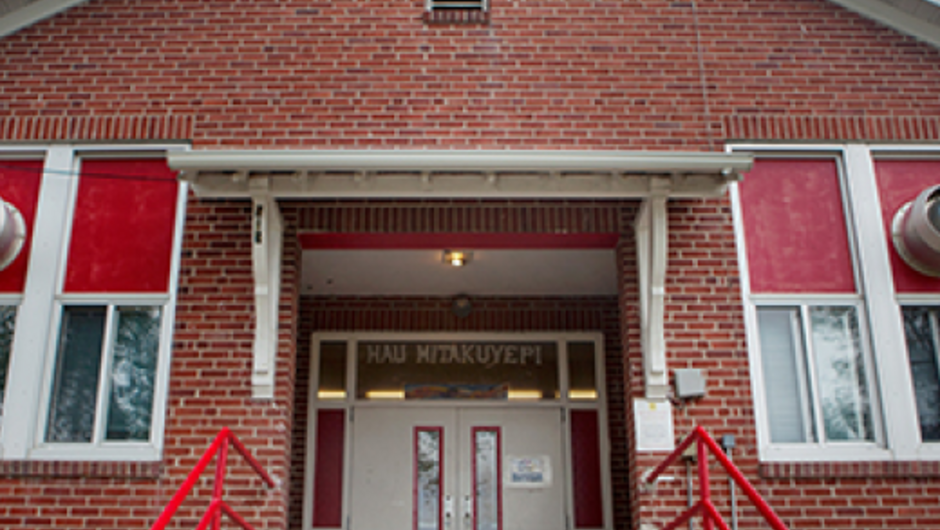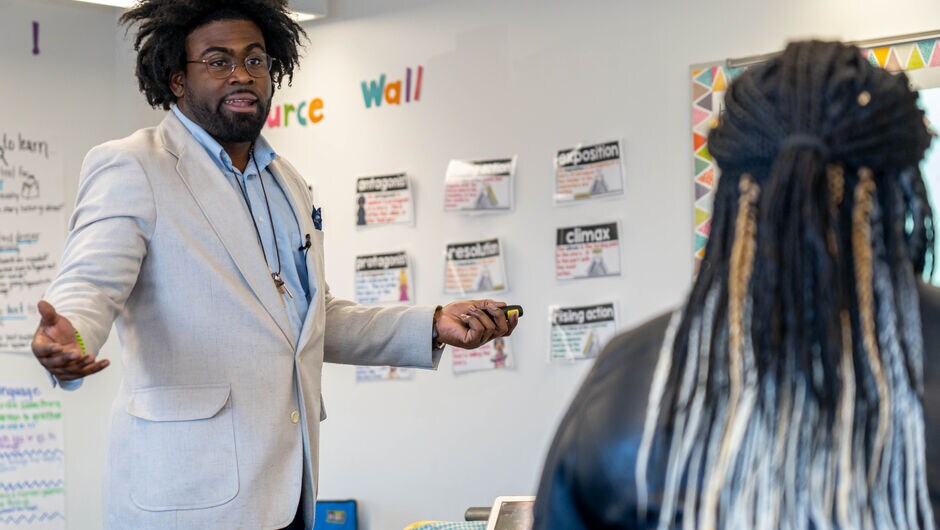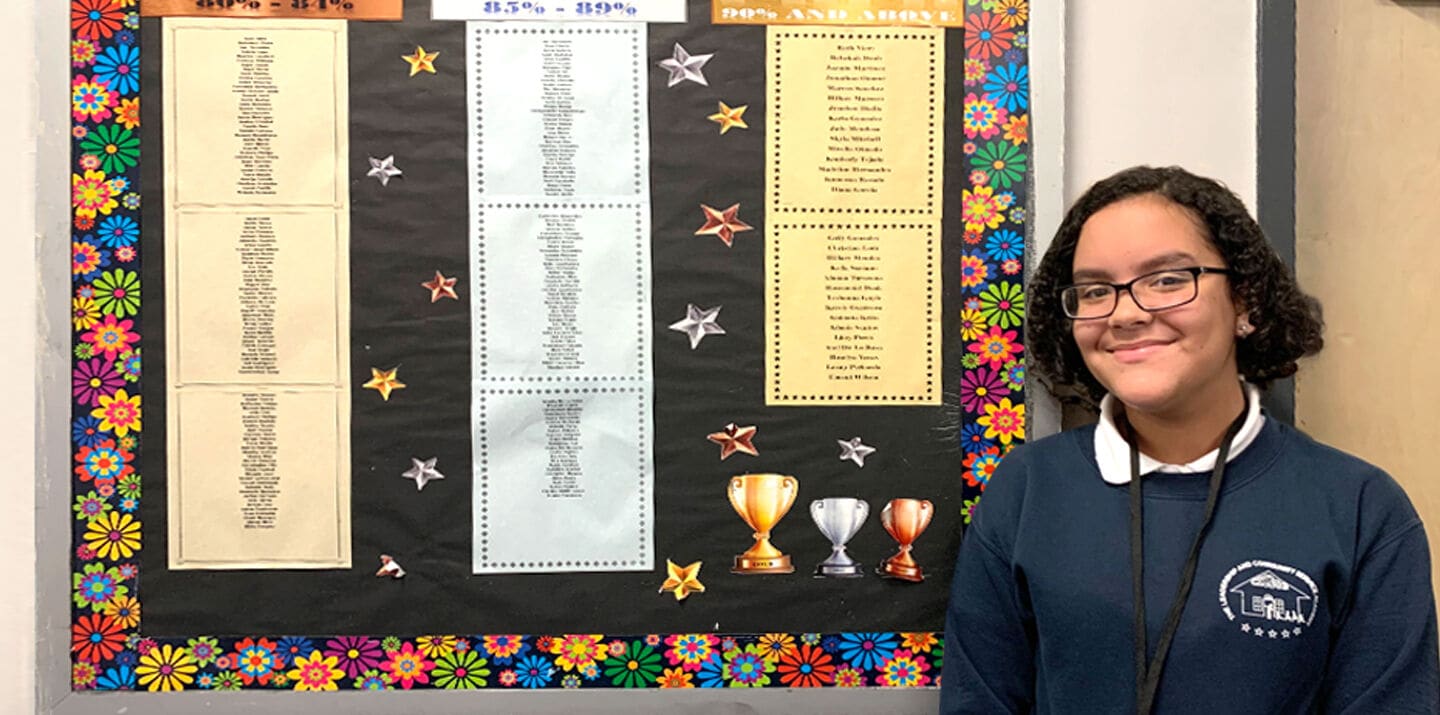
This School Went All-In on Culture and Is Seeing Results
For two decades CIS 303 Middle School has built a close-knit family environment where staff are valued and students have a safe space to learn and grow.
This story is the first in a regular series called What Works: Schools to Learn From. In this series, we will profile each of the five schools that were recognized by Teach For America’s Schools to Learn From program in 2019. These schools were selected because they excel at providing an excellent education in a specific area, such as culture, systems, or pedagogy. These schools have opened their doors to other educators to share honest insights about what works and what they’ve learned along the way.
Walking through the bright halls of New York City's CIS 303 Leadership and Community Service Academy, every wall is covered in student work and colorful affirmations that invite closer inspection.
A science project examining the neighborhood’s water quality. Persuasive essays on whether Catalonia should gain independence from Spain. On the shout-outs wall, teachers recognize individual students for modeling leadership, helping others, and persevering in class.
The faces of teachers and staff are also included on these walls and underscore the idea that people matter here. Photos of AmeriCorps volunteers are displayed on a map of the United States, with lines of tape pinpointing where they are from. In one display, students can win a prize if they can identify each teacher who is hiding behind their favorite book. The eighth grader leading our tour can identify nearly every teacher by name. Talking to students, they will tell you about the high schools they are applying to and how excited they are about the school’s upcoming production of Frozen.
The school offers a warm and welcoming environment for students in grades sixth through eighth. It’s a place where people come first, and students and teachers are treated like family. Not surprisingly, this culture also translates to strong outcomes for students, families, and teachers. While many students enter CIS 303 academically behind, they tend to achieve a tremendous amount of growth over their three years at the school. Eighth graders consistently outperform their peers at the district level in both ELA and math. Annual suspension rates are in the single digits. Parents report feeling a strong sense of trust with teachers and school leaders. And the average teacher tenure is nearly seven years.
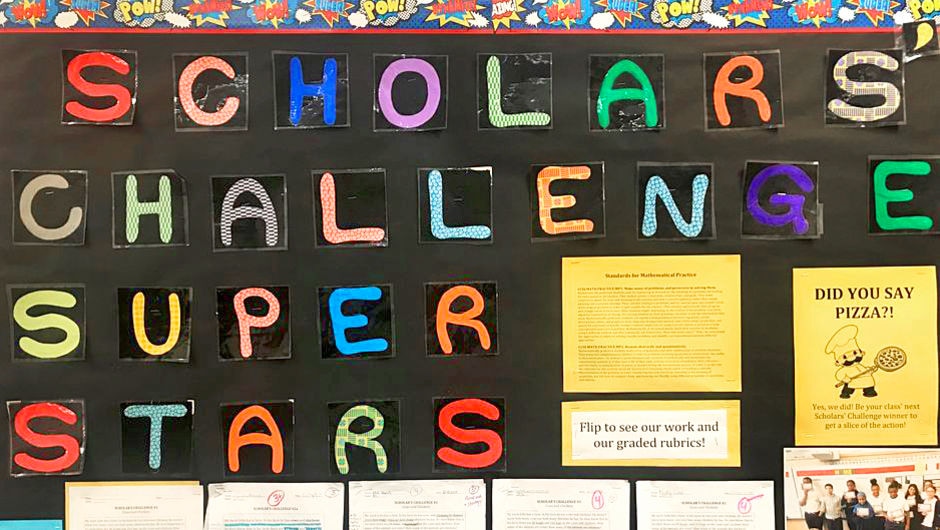
CIS 303 was founded in 2000 by a group of teachers who hoped to create a small, responsive space for students. Monica Brady, a 1995 Teach For America New York alum, was one of the founding teachers. She now serves as principal, alongside Assistant Principal Danielle Lerro, also a New York alum from 2005. Both have been at the school for more than 15 years which is remarkable when research has found that two-thirds of educators in New York City’s middle schools leave within their first five years of teaching.
The school is located in the Morris Heights neighborhood in the Bronx, situated in the poorest congressional district in the country. Over 90 percent of students at CIS 303 qualify for free or reduced-price lunch. Nearly all students identify as Latinx or Black. Because of the rising rents and cost of living in the surrounding neighborhood, many students are dealing with systemic challenges such as temporary housing and the stresses of parents working multiple jobs to make ends meet.
The school is home to 314 students and occupies one floor of a multi-floor building that also houses two other schools. Walking these floors, you can tangibly feel the difference between one school culture and another.
Outside the school walls, the neighborhood presents challenges that are very real. But inside the school, Monica and her team are focused on creating a nurturing environment that gives students a safe place to process trauma, discover their strengths, and develop their full potential. The investment the school team makes in its students is seen everywhere—in the halls, on the walls, and in the classroom.
What CIS 303 is doing isn’t the result of a surplus of funding or a particularly large staff. It’s a combination of pouring unconditional love into students and teachers and creating systems rooted in the belief that everyone at the school is part of a family.
Here is what works at CIS 303.
Ground Your School Vision in Compassion for People
When CIS 303 first launched, the school held an all-staff retreat and involved everyone in creating a shared vision for their ideal school culture. What they landed on was a nurturing community of ongoing learners who are devoted to self-development, the value of achievement, and the willingness to do their best. The notion of “nurturing people” is evident in the way the school prioritizes relationships with all the students and adults in the building. There are structures built into every school day that allot time for mentoring, for critical conversations, and for celebrations. School staff give out a lot of hugs.
Monica says honing in on an attainable vision that everyone is bought into is the most important piece of groundwork for how the school operates.
“What I came to realize is that I didn't need to change the world,” she says. “I just needed to make a space for my kids to do well.”
Over the years the school team has adjusted course based on student performance and feedback from students, families, and staff. Even as the team has experimented with new approaches, they’ve held true to their founding principles.
Monica says it takes time for a vision to play out, and maintaining consistency year after year is key.
“We’re not reinventing the wheel every year, and not trying 12 new things,” she says. “Find your system and work out all the kinks before deciding if you should throw it away.”
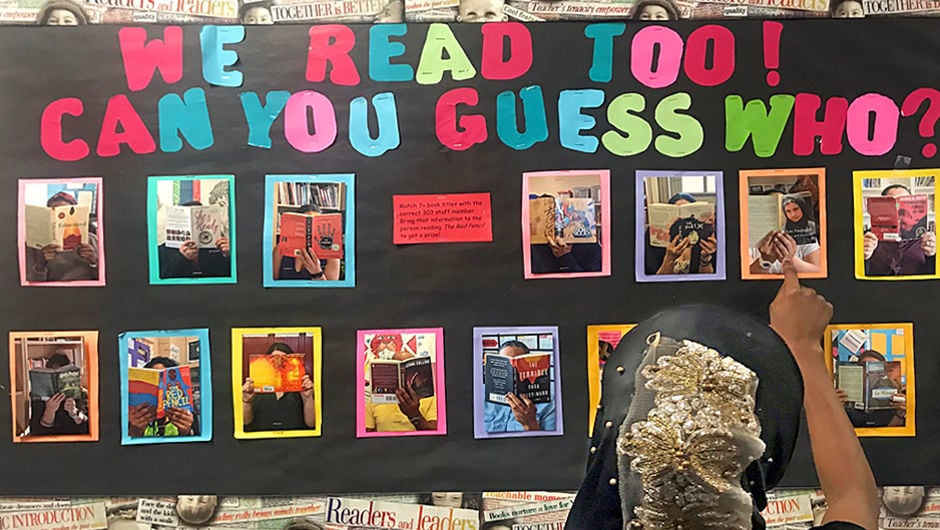
Hire the Right People and Set Them up for Long-Term Success
Monica and her team have built a trusting and loving school family over time. When the time comes to bring new people into the family, they are very intentional about hiring staff who are already bought into the school’s culture. The school has several structures in place to ensure staff make a successful transition into their new role and are set up for longevity.
New teachers begin their tenure with an intensive summer onboarding. They are also matched with a veteran teacher in their content area and spend their first two years at the school co-teaching a class. Veteran teachers serve as mentors, observe lessons, share constructive feedback, and help new teachers navigate situations that come up. They decode acronyms thrown around in school meetings, demystify the ins and outs of the Department of Ed and how to write an IEP. The co-teacher model also means there’s an extra teacher in the classroom to support students, especially those who need extra help with reading and math.
Jenna Lipman is a 2018 corps member who teaches seventh-grade math. She says her mentor teacher has helped to build her confidence and avoid feeling overwhelmed.
“My co-teacher wants me to become the best math teacher possible because she knows that's what's going to be best for our students in our school and at large,” she says.
The school team has also made a concerted effort to hire a diverse faculty body, especially staff who share the racial and economic background of the students they serve. Over 60 percent of full-time teachers identify as people of color. Equity work is another important piece of building a close-knit family culture and supporting staff longevity. Professional development focuses on understanding identities and creating a safe space to examine unconscious biases.
Kathleen Casey is in her third year of teaching at CIS 303, after starting as a 2017 corps member. She echoed the school’s philosophy that working toward equity is an ongoing process that everyone recommits to every day.
“My journey as an educator is also about figuring out where my privileges lie, how that is internalized by my students, and how that plays out in my teaching in ways that I may not see,” she says. “I’m constantly asking myself: what else can I bring into the classroom? What conversations can we have based on our identities?”
Trust Your Staff and Give Them Opportunities to Lead
Staff have a high level of trust and support to make decisions and lead. The culture at CIS 303 is largely teacher-driven, and those who are working directly with students have an outsize voice in what happens at the school. Teachers are treated as leaders and help make key decisions about what happens at the school. Teachers take turns leading daily meetings for grade-level team members to review student work, plan events, and discuss students they have concerns about. Grade-level teams have a lot of decision-making power, but also have the support from their administrators when larger issues come up.
In addition to serving as mentors for newer teachers, veteran teachers also lead professional development and serve on the school’s administrative cabinet. The school has found ways to budget to ensure that teachers are recognized and compensated for taking on these extra responsibilities.
This distributed leadership model enables school administrators to maintain a pulse on staff morale and opinions. It also helps strengthen trust among teachers. They see their peers making many of the school-wide decisions and serving as conduits to the school leadership team.
By sharing leadership responsibilities, teachers have a clear career path to move up into formal leadership roles, which reduces turnover. This model also speaks to the long tenure that many staff members at CIS 303 have maintained, including several founding school members who have been at the school for nearly two decades.
“We trust our teachers and their strong work ethic,” Monica says. “Their keen instructional sense, and love and caring for their students are evident in our community.”
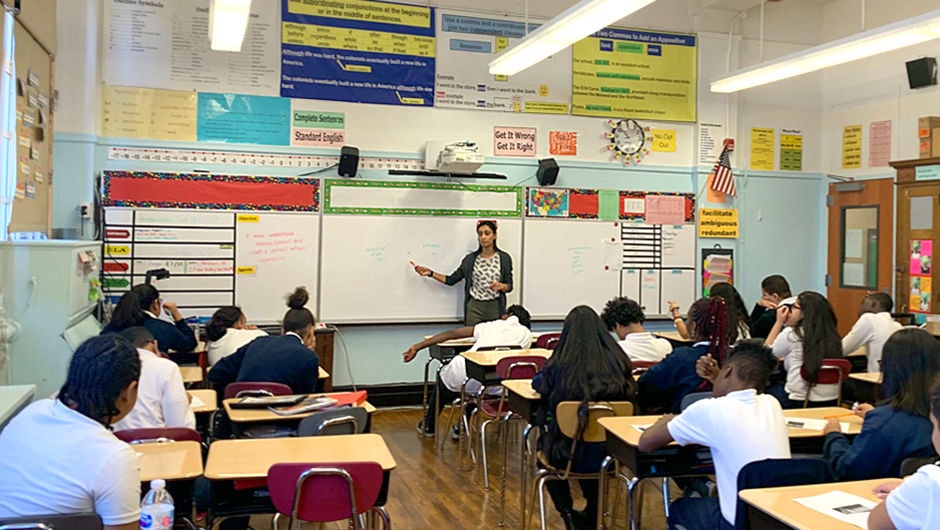
Meet Middle School Students Where They Are
Middle school students are at a crossroads between childhood and becoming young adults. It’s a tough time, punctuated by hormones and big feelings. And the school’s fundamental philosophy reflects that: students need to feel safe physically, emotionally, and socially before they can make academic growth.
The school’s advisory program is part of this larger social-emotional safety net. Students start each day in a calm, safe, and caring environment.
During the advisory period, students share personal highs and lows, practice conflict resolution, and build authentic relationships with teachers and school staff. Most importantly, it’s a safe space where students can be vulnerable and talk openly about how they are feeling.

The school’s advisory program helps build a culture of trust and accountability by pairing students with a point person on school staff. The point person stays in frequent contact with their students and their families and serves as the student’s go-to person for any issues. Students also work together with staff during discipline support meetings to help problem-solve.
An eighth grader we spoke with says his advisors have had a big influence on building his self-confidence and making him feel like the adults in the school have his back.
“The teachers actually take the time to listen to whatever problem you might have,” he says. “No matter what the problem is if it's big, small, they always have an insight and they give you the best advice.”
Students also build confidence and autonomy by taking on formal leadership roles at the school. Eighth graders serve as mentors for incoming sixth graders and help them get acclimated to life in middle school. The school’s young men’s mentoring program also pairs eighth-grade students who have overcome significant struggles with sixth graders who are dealing with similar issues. The program not only benefits incoming students who are struggling but allows the eighth graders to practice coaching using the therapeutic strategies they’ve learned.
Some teachers have been working to give students opportunities to lead in the classroom, encouraging them to make pedagogical decisions and even present lessons to the class.
In addition to helping students look out for each other, these systems create shared accountability within the school community. Another eighth grader we spoke with serves as a mentor and takes her responsibilities seriously.
“I make sure to ask the sixth graders every day how they're doing, make sure that they are always on task,” she says.
She admits that her entry into CIS 303 as a sixth grader was a rough transition. Now that she’s in her third year at the school, her perspective has changed.
“At this school, I feel like you can be more open about things,” she says. “In elementary school, we really didn't have that. We had to stay in our own place and not grow as people. But here, my teachers showed me that it's okay.”

Create Opportunities for Students to See Their Place in the World
One extension of the equity-focused culture at CIS 303 is increasing students’ access to life skills learning and identity affirming experiences that are often a given among their more affluent peers.
The school hosts several college and career readiness events throughout the year, inviting professionals who share the same backgrounds as students to speak about their careers. During the school’s annual Women’s and Men’s Leadership Day, students can self-select which group best fits their gender identity, and engage in discussions facilitated by outside speakers about how to be a strong woman, man, or an ally.
The school offers life skills workshops that help students feel empowered as they transition into adolescence. Topics include “Know Your Rights”, “Finances 101”, “Natural Hair Care”, and “Consent.”
Student field trips also help students see their place in the world. The student Explorers’ Club raises money and plans for an extended field trip to a different cultural or historical site every year. Every grade level also attends a college field trip.
Danielle Lerro, who serves as the assistant principal, says the most important way the school increases access for students is through lots of conversations about structural inequalities and how individuals can advocate for themselves and their communities within the current structures.
“Research shows that low-income students often struggle in higher education because they have not been taught to explicitly navigate those spaces,” she says. “We discuss what it looks like to ask for extra help or clarification, or how to find a mentor or an ally in a new space.”

Big Change Takes Time But Focusing on Your People Can Happen Now
The school leaders at CIS 303 recognize that creating systemic change is a slow process, one that is often hindered by many factors outside of their control. Danielle is both realistic and hopeful about the school’s ability to disrupt larger societal systems.
“There’s a tension between helping our students navigate these systems and knowing that these systems are also stacked against us,” she says. “I think that the place we're at now is to talk really openly and honestly with our students about the systems that we're working in and how they can advocate for themselves.”
Developing and refining school culture and systems is a long game. But any school can begin “pouring love”—as Monica puts it—into its people immediately and take small steps to ensure staff and students feel seen and supported.
By providing students and staff with unconditional love and support, the team at CIS 303 is quietly disrupting some very big systems that exist outside of the school by creating a haven for students to just focus on building their strengths in a safe and supportive environment. Monica says that during school hours, students have the freedom to just be kids, even while the world outside may force them to confront very grown-up things.
“I think that at this moment, our approach is to insulate our kids from the effects of all of the things that are going on outside of this school that we don’t have any control over,” she says. “Then it’s a matter of how to get us as adults to a place where we can figure out the good fight, beyond the school system.”
Do you work at or know a school that is doing great things for kids? Want to share these learnings with a national audience? Learn more about TFA’s Schools To Learn From program. And feel free to share your thoughts on this story or suggest other stories for us to pursue.
Sign up to receive articles like this in your inbox!
Thanks for signing up!
Content is loading...





